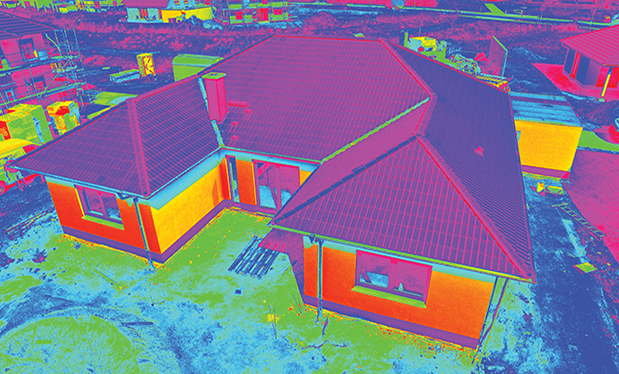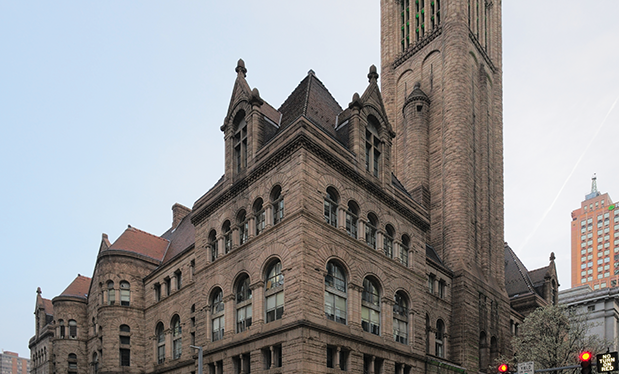At the beginning of March, NRCA was heavily focused on preparations for Roofing Day in D.C. 2020, the premier industry advocacy event scheduled for April 21-22 in Washington, D.C. Two weeks later, Roofing Day in D.C. 2020 had to be canceled as a result of the COVID-19 pandemic, and the world of government relations was turned upside down in an unprecedentedly short period of time.
Now, NRCA is focused on a new public policy agenda to meet the roofing industry’s needs resulting from the economic fallout of the COVID-19 crisis. Given the severity of the pandemic and resulting economic chaos, it appears likely the federal policy response to the crisis will dominate the efforts of Congress and the Trump administration for several months and possibly through the end of 2020 and beyond.
Economic fallout
The unprecedented shutdown of economic activity resulting from state and local orders to shelter in place, practice social distancing and comply with other restrictions to slow and ultimately stop the spread of the virus threatens the viability of many businesses, including those in the roofing industry.
By early April, an NRCA survey indicated about 40% of roofing contractors said COVID-19 was having a significant and steadily increasing effect on their businesses. Fifteen percent reported they already had laid off workers because of the economic slowdown.
As the severity of the situation became apparent, NRCA began working with coalition allies as Congress took up emergency legislation to deal with the economic impacts of the crisis. NRCA contacted lawmakers and issued action alerts in support of the Coronavirus Aid, Relief, and Economic Security Act, or CARES Act, (H.R. 748), legislation to provide economic relief to sustain small- and mid-sized businesses through the initial stages of the crisis. The bill provides an estimated $2.2 trillion in funding to businesses and individuals to minimize economic damage and keep people employed to the greatest extent possible.
One key component of the legislation is the Paycheck Protection Program designed to provide financial resources to employers promptly to enable them to retain their employees. This $349 billion lending program is conducted through private lenders and backed by the Small Business Administration. Businesses with 500 or fewer employees that were operational as of Feb. 15, 2020, are eligible for the Paycheck Protection Program, including independent contractors and self-employed individuals.
Under the Paycheck Protection Program, the loan amount is 2.5 times an employer’s average monthly payroll up to $10 million, and the Small Business Administration has set an interest rate of 1% and maximum maturity of two years. Critically, the Small Business Administration will forgive all or a portion of the loan based on allowable expenses of the borrower during an eight-week period after the loan origination date.
However, the amount forgiven will be reduced proportionally by any reduction in employees retained compared with the prior year and reduced by the reduction in pay of any employee beyond 25% of his or her prior year compensation. Borrowers must make a good faith certification under penalty of perjury that the loan is necessary because of the uncertainty of current economic conditions caused by COVID-19. As a result of strong demand from employers across the U.S., Congress is expected to approve an additional $250 billion for the Paycheck Protection Program.
The CARES Act also provides $454 billion to facilitate increased private sector lending through the Department of the Treasury and Federal Reserve to address the needs of businesses with up to 10,000 employees or a maximum of $2.5 billion in annual revenues. On April 9, the Federal Reserve released more information about a new Main Street Lending Program designed to meet liquidity needs of businesses adversely affected by the COVID-19 pandemic. Additional information is available at www.federalreserve.gov.
Other provisions in the CARES Act include several tax provisions employers can use to reduce tax liability to help obtain cash needed to sustain operations during the crisis, direct payments to qualifying individuals and expanded unemployment insurance benefits for workers who are laid off or furloughed because of reduced economic activity.
NRCA remained active as Congress and the Trump administration worked to pass the Families First Coronavirus Response Act (H.R. 6201). This new law provides paid sick leave and expanded family and medical leave benefits to employees who are forced to miss work because of personal COVID-19 illness or COVID-19 illness of immediate family members. The law also gives employers tax credits that will enable them to recoup the cost of the new paid leave requirements related to COVID-19.
Essential business
NRCA also advocated for roofing professionals’ ability to continue work during the pandemic. On March 19, NRCA and industry partners sent a letter to the Trump administration making the case roofing contractors, manufacturers, distributors and raw material suppliers are essential to maintaining the critical infrastructure of the U.S. during the crisis. NRCA staff worked directly with the Department of Homeland Security’s Cybersecurity and Infrastructure Security Agency to issue improved guidance that is more favorable to the roofing industry.
In addition, NRCA worked with affiliate partners to provide similar information to governors in states with restrictive orders as the situation unfolded.
Better days ahead
NRCA will continue working to support the roofing industry as lawmakers in Congress and other government officials craft laws and regulations necessary to address the COVID-19 pandemic. Additionally, NRCA is already working to make Roofing Day in D.C. 2021, to be held in Washington, D.C., March 23-24, bigger and better than ever. All roofing industry professionals are strongly urged to attend the advocacy event and make the industry’s voice heard in the halls of Congress.
Duane Musser is NRCA's vice president of government relations in Washington, D.C.
NRCA has created a webpage with important information regarding COVID-19. The latest recommendations from health experts, Occupational Safety and Health Administration guidance, and legal, insurance and financial resources are available at www.nrca.net/covid-19-resources-for-roofingcontractors.
This column is part of Rules + Regs. Click here to read additional stories from this section.



